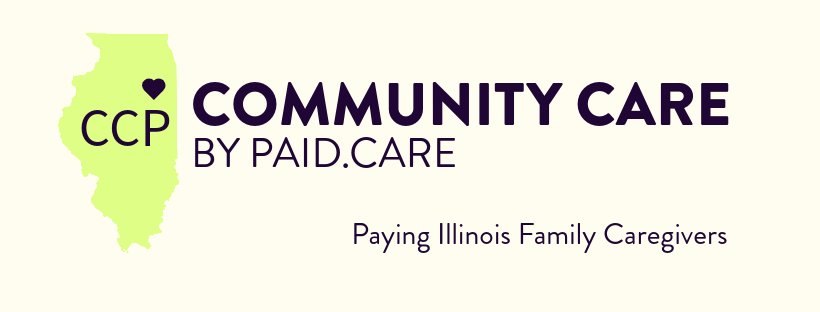Navigating Illinois' Consumer Directed Personal Assistance Program (CDPAP)
Discover the ins and outs of Illinois' Consumer Directed Personal Assistance Program and how it can benefit both caregivers and care recipients.
Understanding the Consumer Directed Personal Assistance Program in Illinois
The Consumer Directed Personal Assistance Program (CDPAP) in Illinois is a program designed to provide individuals with disabilities or chronic illnesses the ability to hire and manage their own personal care assistants. This program is part of the Medicaid program and allows individuals to have more control and flexibility in choosing their caregivers and the services they receive.
Through the CDPAP, individuals have the authority to recruit, hire, train, and supervise their personal care assistants. This allows for a more personalized and tailored approach to care, as individuals can select caregivers who understand their specific needs and preferences.
The CDPAP also provides financial support to caregivers by allowing them to be paid for their services. This is particularly beneficial for family members and friends who may be caring for an elderly or disabled loved one. By being able to receive payment, caregivers can dedicate more time and energy to providing quality care.
To be eligible for the CDPAP, individuals must meet certain criteria, including being enrolled in Medicaid, requiring assistance with activities of daily living, and having the ability to direct their own care. It is important to note that the program is not available to all Medicaid recipients, as it is based on individual need and eligibility.
Exploring Illinois’ Caregiver Support Webpage
Illinois’ caregiver support webpage is a valuable resource for individuals and caregivers seeking information and assistance. The webpage provides a wealth of information on various caregiver support programs and services available in the state.
On the caregiver support webpage, individuals can find information about the Consumer Directed Personal Assistance Program, as well as other programs such as respite care, support groups, and caregiver training. The webpage also provides resources and links to other organizations and agencies that can offer additional support.
By exploring Illinois’ caregiver support webpage, individuals can access the information and resources they need to navigate the caregiving journey more effectively. Whether it's finding financial assistance, connecting with support groups, or learning about respite care options, the webpage is a valuable tool for caregivers in Illinois.
The Community Care Program: A Closer Look
The Community Care Program is a state-funded program in Illinois that provides in-home services to individuals who are elderly or have disabilities. It is designed to help individuals live independently in their own homes and communities for as long as possible. It offers a range of in-home care services, including:
Personal care assistance with daily living activities like bathing, dressing, and toileting.
Homemaking services such as light housekeeping, meal preparation, and laundry.
Adult day services for social interaction and supervised care outside the home.
Home-delivered meals for those who have difficulty preparing meals on their own.
One of the unique features of the Community Care Program is the option for family members and friends to be paid caregivers through Medicaid. This means that individuals can hire their own loved ones to provide care, allowing for a more familiar and comfortable caregiving experience.
To access the Community Care Program, individuals can contact their local Area Agencies on Aging (AAAs). These agencies can provide information on eligibility criteria, the application process, and available services. By utilizing the Community Care Program, individuals can receive the support they need to remain in their homes and communities while receiving quality care.
Family and Friends as Paid Caregivers through Medicaid
One of the key benefits of the Consumer Directed Personal Assistance Program in Illinois is the ability for family members and friends to be paid caregivers through Medicaid. This means that individuals can hire their own loved ones to provide care and receive financial compensation for their services.
By allowing family members and friends to be paid caregivers, the program recognizes the value of informal caregivers and the important role they play in the lives of care recipients. It also provides financial support to caregivers, enabling them to dedicate more time and energy to providing quality care.
To be eligible for Medicaid reimbursement as a paid caregiver, family members and friends must meet certain requirements, such as completing a caregiver training program and meeting the state's criteria for caregiver qualifications. The specific details and process may vary, so it is important to consult the Medicaid program and home care agencies like Paid.care for guidance and support.
By becoming a paid caregiver through Medicaid, family members and friends can not only provide essential care to their loved ones but also receive financial compensation for their valuable services. This can alleviate some of the financial burdens associated with caregiving and allow caregivers to focus on providing the best possible care.
How Paid.care Can Help
Paid.care is a valuable partner in navigating both the CCP and CDPAP programs. We assist with:
Caregiver recruitment: Finding qualified and trained caregivers who meet your specific needs.
Caregiver training: Ensuring caregivers have the skills and knowledge to provide quality care.
Caregiver management: Providing ongoing support and supervision to caregivers.
Administrative tasks: Handling payroll, scheduling, and paperwork.
By working with home care agencies and AAAs, families in Illinois can access the resources and support they need to care for loved ones at home.
Additional Resources:
Illinois Department on Aging - Community Care Program: https://ilaging.illinois.gov/programs/ccp.html
Illinois Department on Aging - Caregiver Support Webpage: https://ilaging.illinois.gov/programs/caregiver.html
National Family Caregiver Support Program: https://www.caregiver.va.gov/




